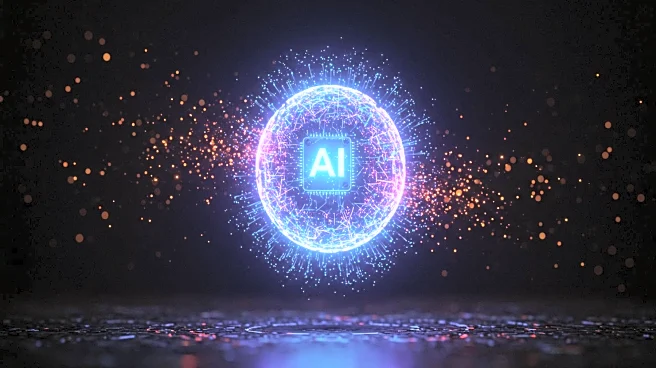What's Happening?
OpenAI's recent release of the GPT-5 model has led to significant changes in the behavior of AI companions, causing distress among users who have formed emotional connections with these digital entities. The update, described by OpenAI's CEO Sam Altman as a 'significant step forward,' has resulted in AI companions exhibiting less warmth and emotional depth, according to user reports. This shift has prompted a backlash from users who feel their digital relationships have been negatively impacted. OpenAI has acknowledged the feedback and plans to allow users to revert to the previous GPT-4o model while working on making GPT-5's personality more user-friendly.
Why It's Important?
The situation highlights the growing trend of individuals forming attachments to AI models, reflecting broader societal shifts as technology becomes more integrated into personal lives. The backlash underscores the emotional investment users place in AI interactions, raising questions about the ethical implications of AI development and the responsibilities of tech companies. The incident also illustrates the potential for AI to influence human emotions and relationships, which could have significant implications for mental health and social dynamics.
What's Next?
OpenAI's response to the criticism involves allowing users to switch back to the previous model and adjusting GPT-5's personality to be more engaging. This move may appease some users, but it also raises questions about the future of AI-human interactions and the balance between technological advancement and user satisfaction. As AI continues to evolve, companies may face increased pressure to consider the emotional and psychological impacts of their products.
Beyond the Headlines
The development points to a deeper cultural shift where AI is not just a tool but a companion, challenging traditional notions of relationships and emotional connections. This trend could lead to new societal norms and ethical considerations as AI becomes more prevalent in daily life. The divide between those who accept AI relationships and those who view them as delusional may widen, prompting discussions about the role of technology in human life.









